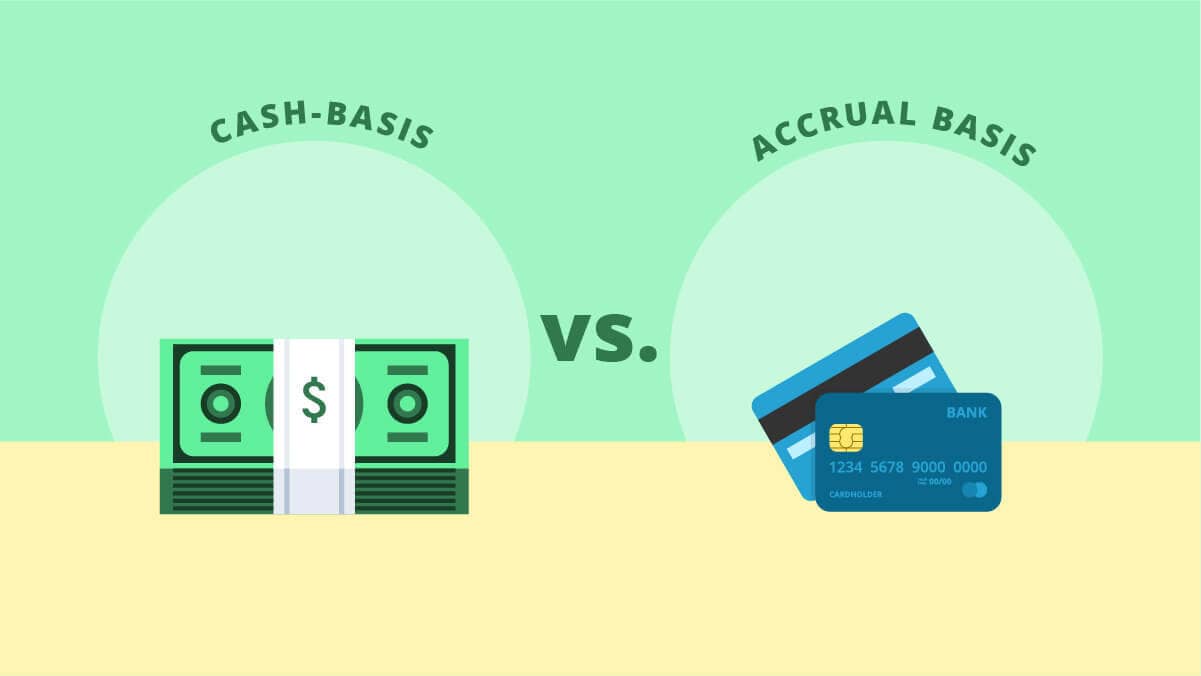As a business owner, you need to know the basics of accounting to make sure you’re keeping track of your money well. Whether you use cash accounting or accrual accounting is one of the most important choices you have to make.
Cash accounting means that transactions are only recorded when cash changes hands. This means that income is only recorded when payment is received and expenses are only recorded when payment is given. Accrual accounting, on the other hand, records income when it is earned, regardless of when payment is made, and expenses when they are made, regardless of when payment is made.
Understanding the differences between cash accounting and accrual accounting is important if you want to make smart business decisions. A financial advisor can help you figure out which accounting method is best for your business based on things like the type of business you have, how much money is owed to you, and how much money you owe to other people (money your business owes).
Understanding the Differences between Cash and Accrual Accounting:
When income and costs are counted is the main difference between cash accounting and accrual accounting. With cash accounting, income is counted when money comes in and expenses are counted when money goes out. Accrual accounting, on the other hand, counts revenue when it is earned, not when it is paid. Likewise, expenses are counted when they are made, not when they are paid.
When deciding which method to use, it’s important to think about things like the type of business you run and the Accounts Receivable and Accounts Payable. A financial advisor can help you weigh the pros and cons of each method and make an informed choice.
Advantages and Disadvantages of Cash Accounting:
Cash accounting is simple and easy to use because transactions are only recorded when cash changes hands. This makes it easy to manage cash flow and can be helpful for businesses with a lot of Accounts Receivable & Accounts Payable because it makes sure that revenue is only counted when payment is received.
But there are some problems with cash accounting. It doesn’t give a true picture of how well the business is doing financially because income and expenses may not be recorded in the same period they are made or paid. This can make it hard to keep track of changes in profit and money over time. Also, businesses with a lot of Accounts Payable might not want to use cash accounting because it doesn’t take into account costs that have been incurred but not yet paid.
Advantages and Disadvantages of Accrual Accounting:
There are a few benefits to using accrual accounting. It gives a more accurate picture of how well a business is doing financially because it counts income and costs when they are earned or incurred, regardless of when payment is made or received. This makes it easier to keep track of changes in profit and money over time. Accrual accounting can also help businesses with a lot of Accounts Payable because it keeps track of expenses when they happen, even if the money isn’t paid until later.
But accrual accounting can be harder and take more time than cash accounting. To make sure it is done correctly, you may need the help of a financial advisor. Also, businesses with a lot of Accounts Receivable might not be able to use it because revenue is counted when it is earned, even if payment doesn’t come until later. This can make it hard for businesses to manage their cash flow, and they may need to find other ways to pay for short-term costs.
Which Accounting Method is Right for Your Business?
The right accounting method for your business will depend on a number of things, such as the type of business you run and the size of your Accounts Receivable & Accounts Payable. If you need to manage your cash flow and have a lot of Accounts Receivable, cash accounting may be a better choice. Accrual accounting, on the other hand, may be the way to go if you want a more accurate picture of how your business is doing financially over time. A financial advisor can help you figure out what your business needs and which method of accounting will work best for you.
How to Choose between Cash and Accrual Accounting:
There are a few things to think about when deciding between cash accounting and accrual accounting. One of the most important things is the type of business you have and how it makes money. If you have a lot of Accounts Receivable, cash accounting may be better because it makes sure that income isn’t counted until payment is received. Accrual accounting, on the other hand, may be a better choice if you want a more accurate picture of how your business is doing financially. You should also think about the size of your Accounts Payable and how you manage your cash flow as a whole. Getting advice from a financial advisor can help you make a smart choice.
Switching from Cash to Accrual Accounting (or vice versa):
Changing from cash accounting to accrual accounting or the other way around takes careful planning and preparation. It’s important to talk to a financial advisor about the change so you can understand what it means and make a plan for moving your records. You will have to make changes to your financial statements, such as putting income and expenses in different time periods. The change may also have an effect on your taxes, so it’s important to look over your tax obligations before making the switch. It’s best to plan the change at the start of a fiscal year or quarter to make sure there are fewer problems and a smoother change.
Conclusion:
To choose the best accounting method for your business, you need to think carefully about your needs and situation. Accrual accounting gives a more accurate picture of a business’s financial performance over time than cash accounting, which may be easier and better for businesses with a lot of Accounts Receivable. Talking to a The Pro Advisory can lead you weigh the pros and cons of each method and make a smart choice. Regardless of which method you choose, it’s important to maintain accurate records and follow best practices for financial management. This will make sure you have all the information you need to run your business well and handle your money well.





